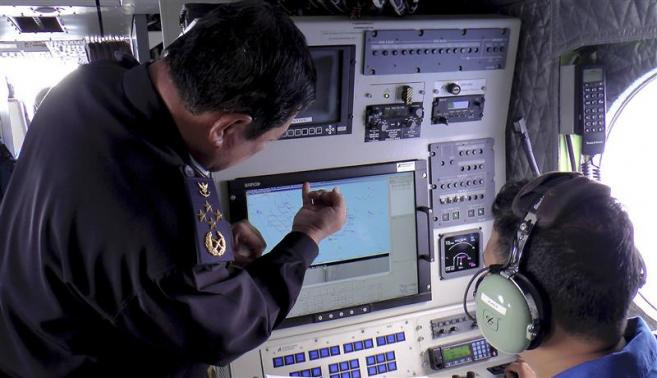Missing Malaysia Airlines Flight MH370: 'Terror Attack Most Likely' says Aviation Expert

In the days following the disappearance of the Malaysia Airlines plane, myriad explanations for its disappearance have been suggested, ranging from a co-ordinated terrorist attack to a random, spontaneous explosion at 30,000 feet.
As rescue teams continue to comb the seas in search of clues, IBTimes UK provides the expert views of Owen Geach, commercial director of the International Bureau of Aviation and one of Britain's leading authorities on air safety.
Owen gives us his views on the most likely cause of the disappearance, and explains that Boeing's past record makes a random disaster unlikely.
What are the most likely scenarios for you at this point?
Well I don't have a 360 degree appreciation of every angle. But the more I listen and read, it still comes back down to four key scenarios: the aircraft has suffered some catastrophic mechanical and electrical failure, adverse weather conditions, the aircraft has been blown up in mid-air by terrorists, or it's been forced to land, again by terrorists.
How likely is mechanical or structural failure in a Boeing aeroplane?
The 777 has been flying since 1994 and has an extremely good safety record. There's been only one fatal incident in B777 history, which was an Asiana B777-200ER that crash landed in San Francisco last year, in which 3 people died. The official report into the incident is not yet available. There was also the BA B777 which landed short of the runway at Heathrow, but there were no fatalities.
There are over 1,000 777s built; they are flown by a global base of operators including Air France and BA, and they are very closely monitored, as with all commercial aircraft, by the authorities.
What about the plane's operator, Malaysia Airlines?
Malaysia Airlines has an excellent safety record. It passed a stringent recent safety audit which goes into great detail in all aspects of operating procedures. Nothing in the airline's track record suggests any deficiency.
And what about the possibility of adverse weather conditions?
Aircraft are very resilient if lightning strikes. There'd have to have been some pretty unusual weather conditions and you would expect a mayday signal, which didn't come. So I'd be sceptical about that.
Ok, so then let's consider the terrorism angle...
Well the most likely scenario is that the aircraft has been subject to some sort of terrorist attack. We read that a couple of passengers were travelling with stolen passports, which suggests someone may have had an ulterior motive.
But whatever scenario you look at, it doesn't the answer the question of why the aircraft has been missing for three days. If the plane has suffered a terrorist attack, why is there no debris?
Also, it would be very surprising if the plane hadn't sent out any form of signal before it exploded. The pilot, you would expect, would have put out a mayday signal.
Well perhaps the plane was diverted to a remote location...
In terms of a terrorist attack, the relatives are hoping the plane has been diverted to a remote location. But, as I said, the most likely scenario is that there has been a mid-air explosion or the plane has been crashed into the sea by terrorists.
Hopefully, when the black box is eventually recovered, we will know more.
Why would terrorists crash a plane into the sea, rather than attacking a target on land like the 9/11 attackers?
You'd have to put yourself in the mind of a terrorist to answer that, I've no idea!
If the aircraft has crashed due to mechanical/structural faults, how will that affect Boeing?
'A terror attack is most likely, but that still doesn't explain why the plane has been missing for three days'
Well obviously it would raise questions for the manufacturer. Boeing would quite clearly need to carry out emergency checks – the aviation authorities would issue Airworthiness Directives ordering specific checks.
But, as I said, the 777 doesn't have a history of multiple systems failure, so there'd be no precedent for such an event. It would be a first for this type of aircraft.
If you were leading the search team right now, what advice would you be giving?
I'm not sure what I could add. The search is already exhaustive and, as long as it is exhaustive, they will find evidence of wreckage. The authorities are being sensible by not speculating.
For more information about IBA and its work, go to www.ibagroup.com.
© Copyright IBTimes 2025. All rights reserved.






















